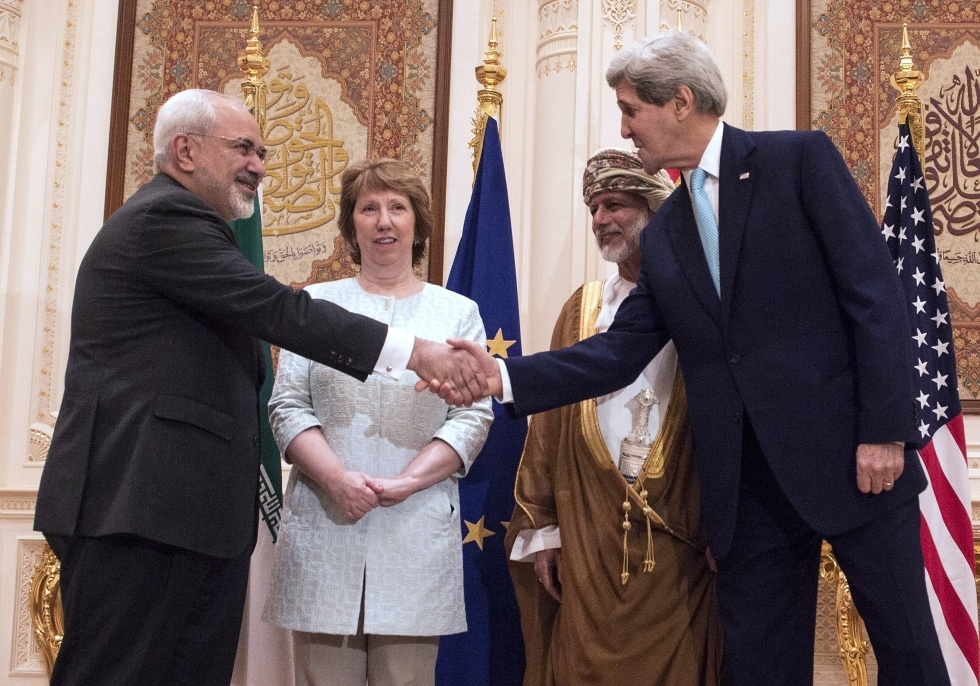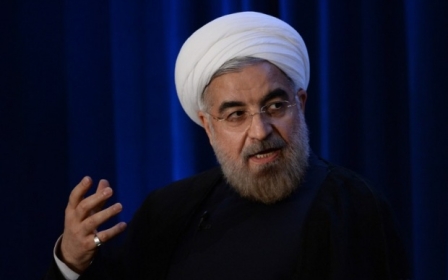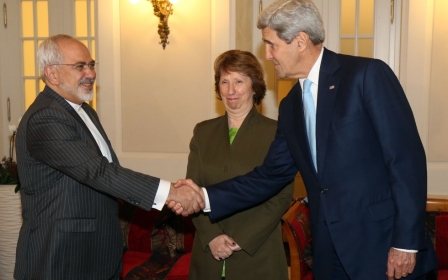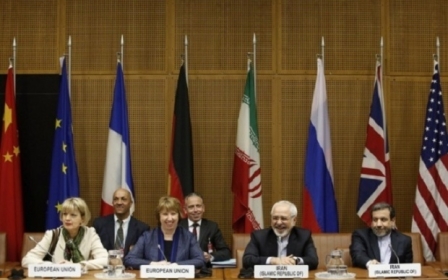'Serious gaps' remain in US-Iran nuclear talks

The United States said Friday that "serious gaps" still need to be overcome with Iran in marathon negotiations in Vienna on ending a 12-year standoff over the country's nuclear program.
With the clock ticking on a deadline for finding a resolution to the dispute, the White House said there remained much to do.
"Obviously, the deadline is Monday, and our folks there are working furiously to meet it... Serious gaps do remain," White House spokesman Eric Schultz said.
In Vienna, US Secretary of State John Kerry and Iran's foreign minister extended their stays for a late-night meeting.
Kerry had been set to leave Vienna and sources had said Mohammed Javad Zarif was considering returning to Tehran, but both remained in the Austrian capital.
"Kerry has delayed his departure (for Paris)... in order to continue consultations" with Zarif, Kerry's spokesperson Jen Psaki said before the two men went into a meeting lasting over two hours.
"We have not yet determined when we will depart, but will stay in Vienna overnight."
Zarif, whose possible trip back to Iran for "consultations" had suggested possible progress, said that world powers made "no significant propositions worth returning to Tehran with".
Iran and the six powers -- the US, China, Russia, Britain, France plus Germany (P5+1) -- have been negotiating intensively since February to turn an interim accord reached with Iran a year ago into a lasting agreement by November 24.
Such a deal, after 12 years of rising tensions, is aimed at easing fears that Tehran will develop nuclear weapons under the guise of its civilian activities -- an ambition the Islamic republic hotly denies.
'Very significant steps'
British Foreign Secretary Philip Hammond left Vienna in the afternoon -- saying there was still a "very significant gap" -- but France's Laurent Fabius was still in the Austrian capital after meeting Zarif for an hour and a half.
"The prize for Iran is huge," Hammond said. He called for more flexibility from the Iranians and said that "in return we're prepared to show some flexibility on our side".
Fabius, seen as one of the most hardline among the P5+1, called on Iran to "seize this opportunity".
Russian Foreign Minister Sergei Lavrov, a crucial player, said from Moscow that "all the elements are already on the table" for a deal and that all that was missing was "political will".
Kerry later "updated Foreign Minister Lavrov on the state of negotiations" by phone, the US official said.
Most analysts expect Iran and the six powers to decide to put more time on the clock -- as they did with an earlier deadline of July 20 -- possibly by agreeing a new interim deal.
Hammond had said on Wednesday that he was "not optimistic" the deadline could be met, suggesting that the best hope was for another extension -- and only provided there was "significant movement".
But Kerry on Thursday insisted this was not on the table.
"We are not discussing an extension. We are negotiating to have an agreement. It's that simple," Kerry said in Paris before he went to Vienna.
Iran believes that the onus on the side of the world powers to compromise. Zarif and President Hassan Rouhani both warned the P5+1 not to sink the talks with "excessive demands".
"We hope that the other side will behave in a rational manner... and won't take the wrong path," Iran's speaker of parliament Ali Larijani said this week.
Complex deal
Some areas under discussion appear provisionally settled in what would be a highly complex deal that would run for many years, even decades.
But two key issues remain: enrichment -- a process that renders uranium suitable for peaceful uses but also, at high purities, for a weapon; and the pace of the lifting of sanctions.
Iran wants to massively ramp up the number of enrichment centrifuges -- in order, it says, to make fuel for a fleet of future reactors -- while the West wants them dramatically reduced.
Kelsey Davenport, an expert at the Arms Control Association, said there was "still a lot of time until Monday at midnight".
Comments indicating flexibility on both sides show that "both parties are coming into these final days willing to look at their positions and make some decisions about the remaining tough issues," she told AFP.
New MEE newsletter: Jerusalem Dispatch
Sign up to get the latest insights and analysis on Israel-Palestine, alongside Turkey Unpacked and other MEE newsletters
Middle East Eye delivers independent and unrivalled coverage and analysis of the Middle East, North Africa and beyond. To learn more about republishing this content and the associated fees, please fill out this form. More about MEE can be found here.




